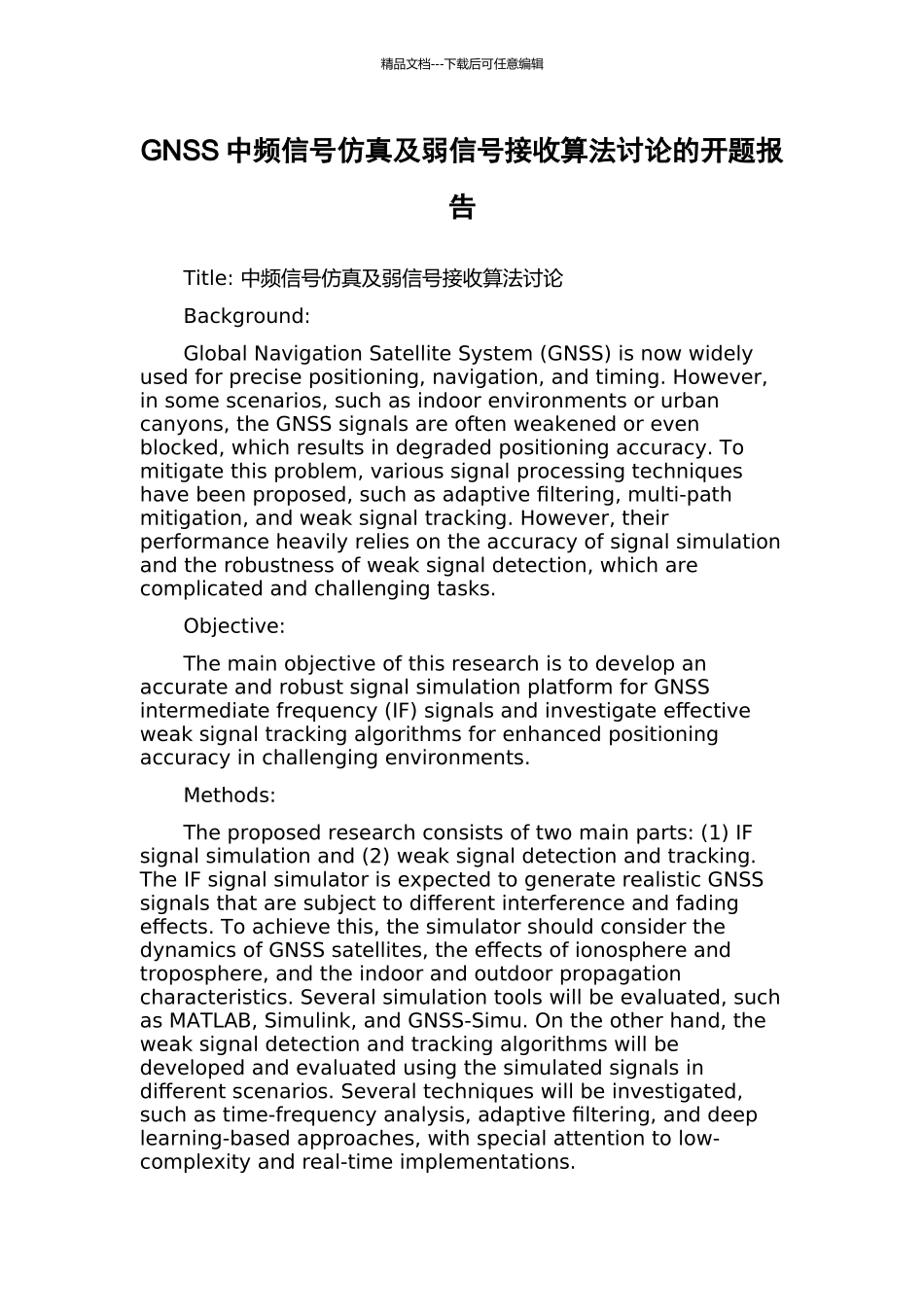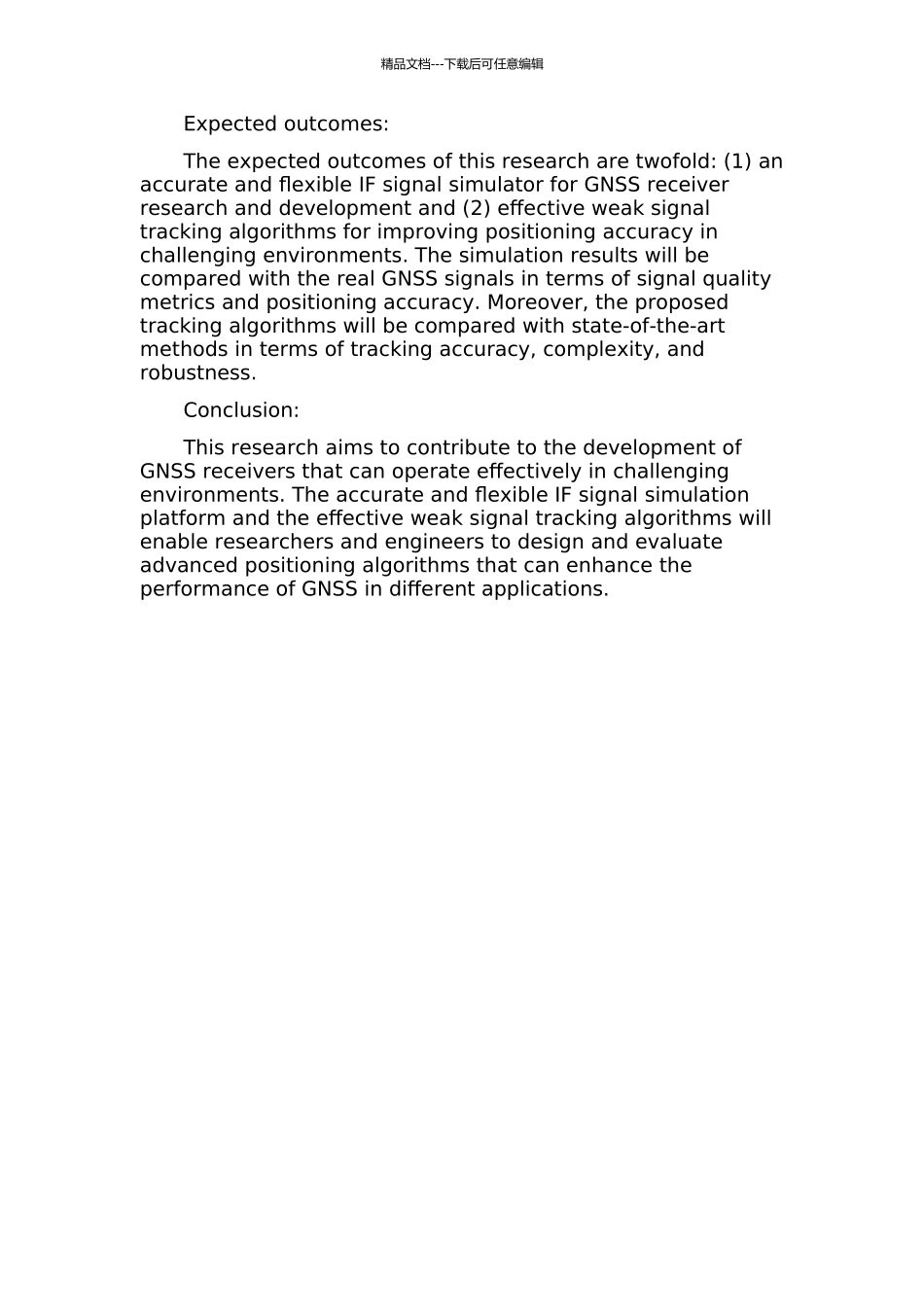精品文档---下载后可任意编辑GNSS 中频信号仿真及弱信号接收算法讨论的开题报告Title: 中频信号仿真及弱信号接收算法讨论Background:Global Navigation Satellite System (GNSS) is now widely used for precise positioning, navigation, and timing. However, in some scenarios, such as indoor environments or urban canyons, the GNSS signals are often weakened or even blocked, which results in degraded positioning accuracy. To mitigate this problem, various signal processing techniques have been proposed, such as adaptive filtering, multi-path mitigation, and weak signal tracking. However, their performance heavily relies on the accuracy of signal simulation and the robustness of weak signal detection, which are complicated and challenging tasks.Objective:The main objective of this research is to develop an accurate and robust signal simulation platform for GNSS intermediate frequency (IF) signals and investigate effective weak signal tracking algorithms for enhanced positioning accuracy in challenging environments.Methods:The proposed research consists of two main parts: (1) IF signal simulation and (2) weak signal detection and tracking. The IF signal simulator is expected to generate realistic GNSS signals that are subject to different interference and fading effects. To achieve this, the simulator should consider the dynamics of GNSS satellites, the effects of ionosphere and troposphere, and the indoor and outdoor propagation characteristics. Several simulation tools will be evaluated, such as MATLAB, Simulink, and GNSS-Simu. On the other hand, the weak signal detection and tracking algorithms will be developed and evaluated using the simulated signals in different scenarios. Several techniques will be investigated, such as time-frequency analysis, adaptive filtering, and deep learning-based approaches, with special attention to low-complexity and real-time implementations.精品文档---下载后可任意编辑Expected outcomes:The expected outcomes of this research are twofold: (1) an accurate and flexible IF signal simulator for GNSS receiver research and development and (2) effective weak signal tracking algorithms for improving positioning accuracy in challenging environments. The simulation results will be compared with the real GNSS signals in terms of signal quality metrics and positioning accuracy. Moreover, the proposed tracking algorithms will be compared with state-of-the-art methods in terms of tracking accuracy, complexity, and robustness.Conclusion:This research aims to contribute to the development of GNSS receivers that can operate effectively in challenging environments. The accurate and flexible IF signal simulation platform and the effective weak signal tracking algorithms will enable researchers and engineers to design and evaluate advanced positioning algorithms that can enhance the performance of GNSS in different applications.

